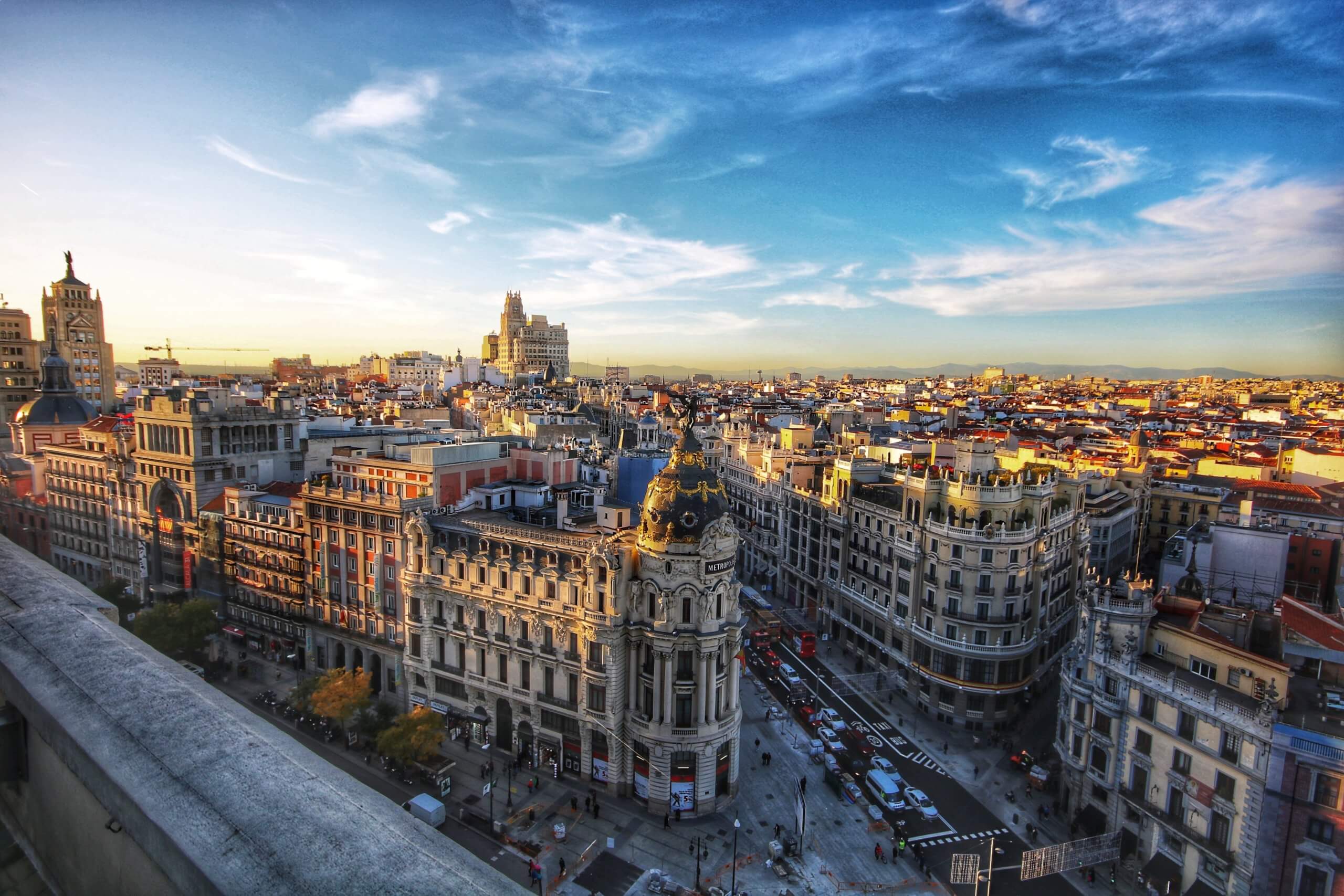- Guides
Our Top 10 Tips to Finding Friends Abroad
Let’s face it, moving abroad, where everything is unfamiliar, can feel like a bit of a maze. You’re struggling with...
Read moreGuides
Lying in the deep south-east of Europe, Cyprus not only offers a lot of fun on vacation but has also developed into a real hub for various service providers who rely on young, multilingual professionals in recent years. This beautiful island has indeed become a hit with expats from around the world. And we know why! Boasting an impressive 300 sunny days a year, sandy beaches and plenty of outdoor activities to keep you occupied in your spare time, it's an easy decision to trade your current lifestyle for Cypriot life. The country also has a strong cultural background and lots to offer any expat, so if you choose to move to Cyprus for work or play, it's a decision you won't regret!
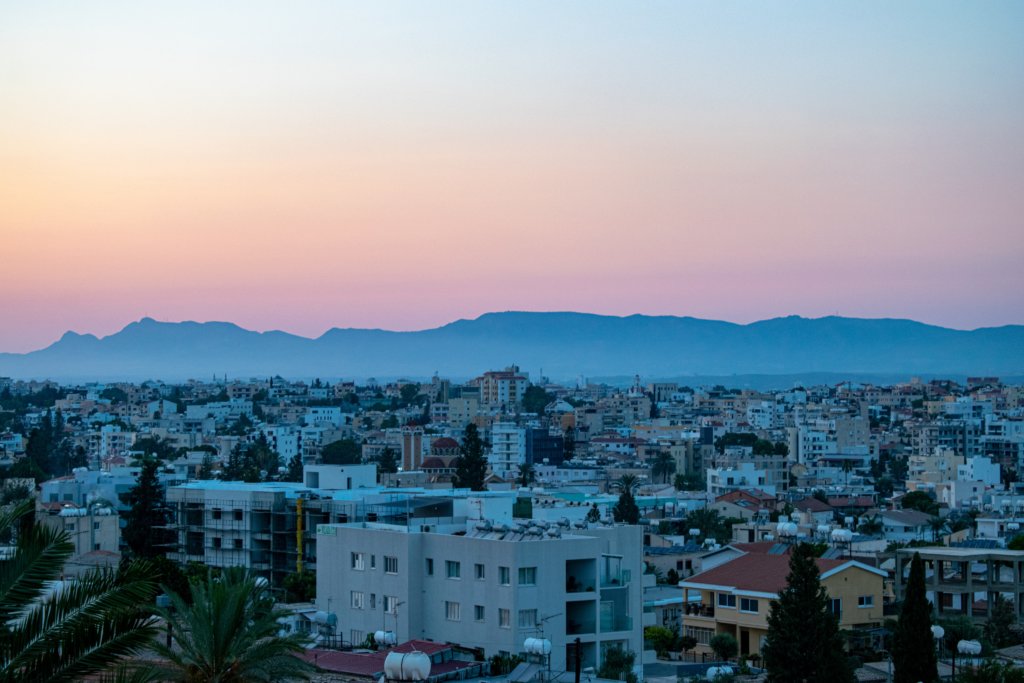
It doesn’t matter if you have your heart set on moving to Cyprus, or you’re still trying to consider all of your options, here are some of the key information you should know about the island before making a move:
The good news for any expat looking to move to Cyprus is that you can enjoy the relaxed, Cypriot way of life from any of the cities within the beautiful country - and because it’s an island nation, you’ll never be too far from the beach or outdoor activities.
Whether you want to live right on the beach or stay further inland to be closer to walking trails, hills, and forests, there’s plenty of choices when it comes to picking the area of Cyprus you want to call home.
Here are some of the main cities where most of the job opportunities are:
Nicosia is Cyprus' capital city that lies slightly inland and offers the perfect combination of urban, city life and relaxation. Despite being the country's capital, the city is sometimes overlooked by expats who want to be as close to the beach as possible.
Nicosia is your best bet if you want to immerse yourself in the Cypriot culture and experience life in a vibrant city full of character. The city is also the business and financial centre of the country, making it a perfect location for young professionals who want to be close to the office and around plenty of entertainment, nightlife and shopping options.
The coastal city of Limassol is one of the most-loved areas by expats as it has a very modern feel to it, combined with beautiful beaches and water sport activities to stop you from ever being bored.
Not only is there plenty to keep you occupied in the city, but there’s also a lot of history and character. You’re in touching distance to some of the most beautiful historical sites in the world like Limassol Castle, the Amathus Ruins and the Mosque of Djami Kebir.
It’s also a very residential area, so there’s plenty of housing options, and you’ll be surrounded by busy streets of pubs, cafes, restaurants and nightclubs.
Not only is Paphos the supposed birthplace of the Greek goddess Aphrodite, but it’s also a big hit with tourists and expats alike for its beautiful surroundings, pristine beaches and picturesque villages.
If you want to live somewhere with good access to a range of amenities, airport and road connections, Paphos is an excellent option for you. Despite being right on the coast, you’re also not far from the beautiful and lush countryside.
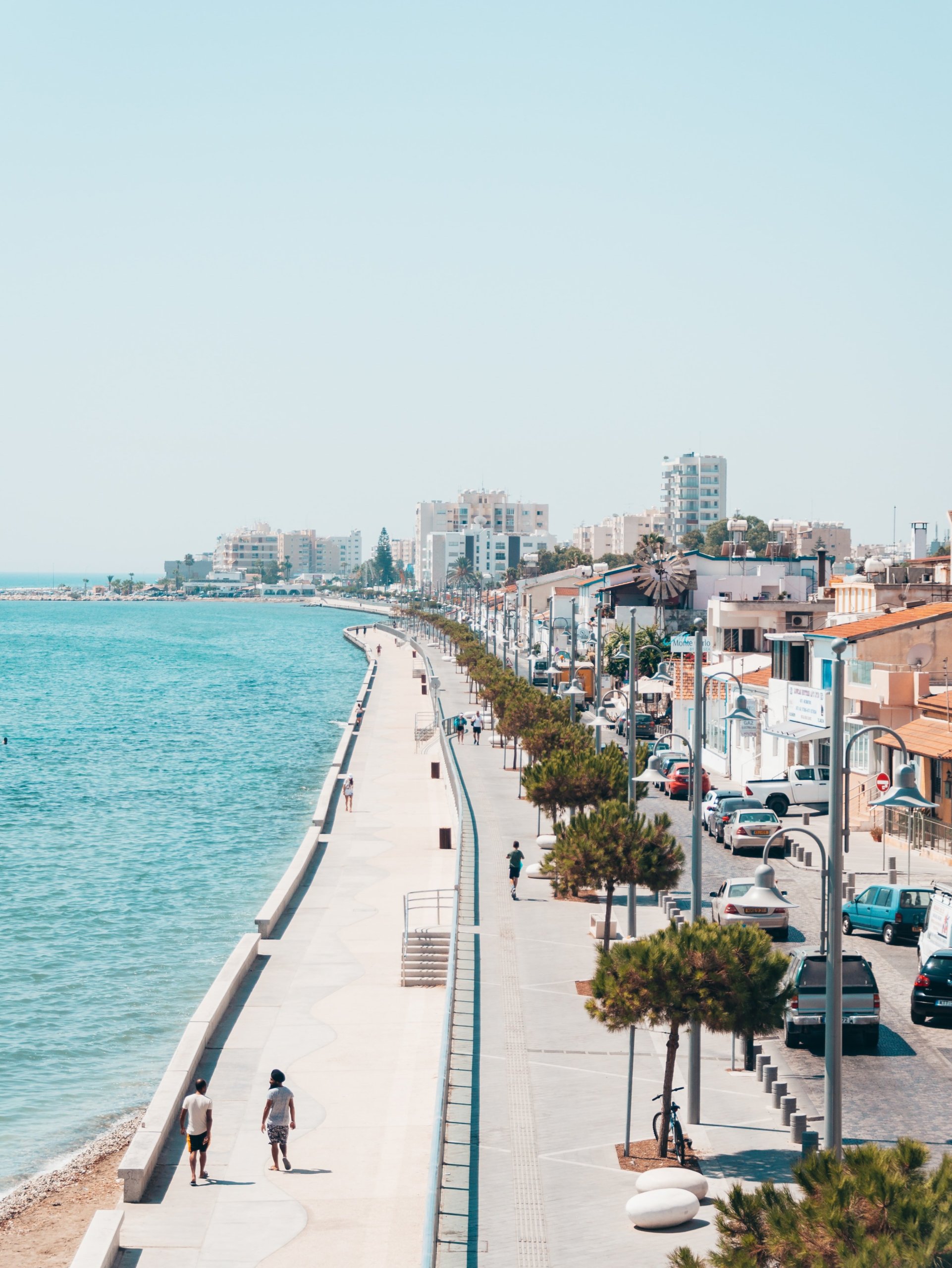
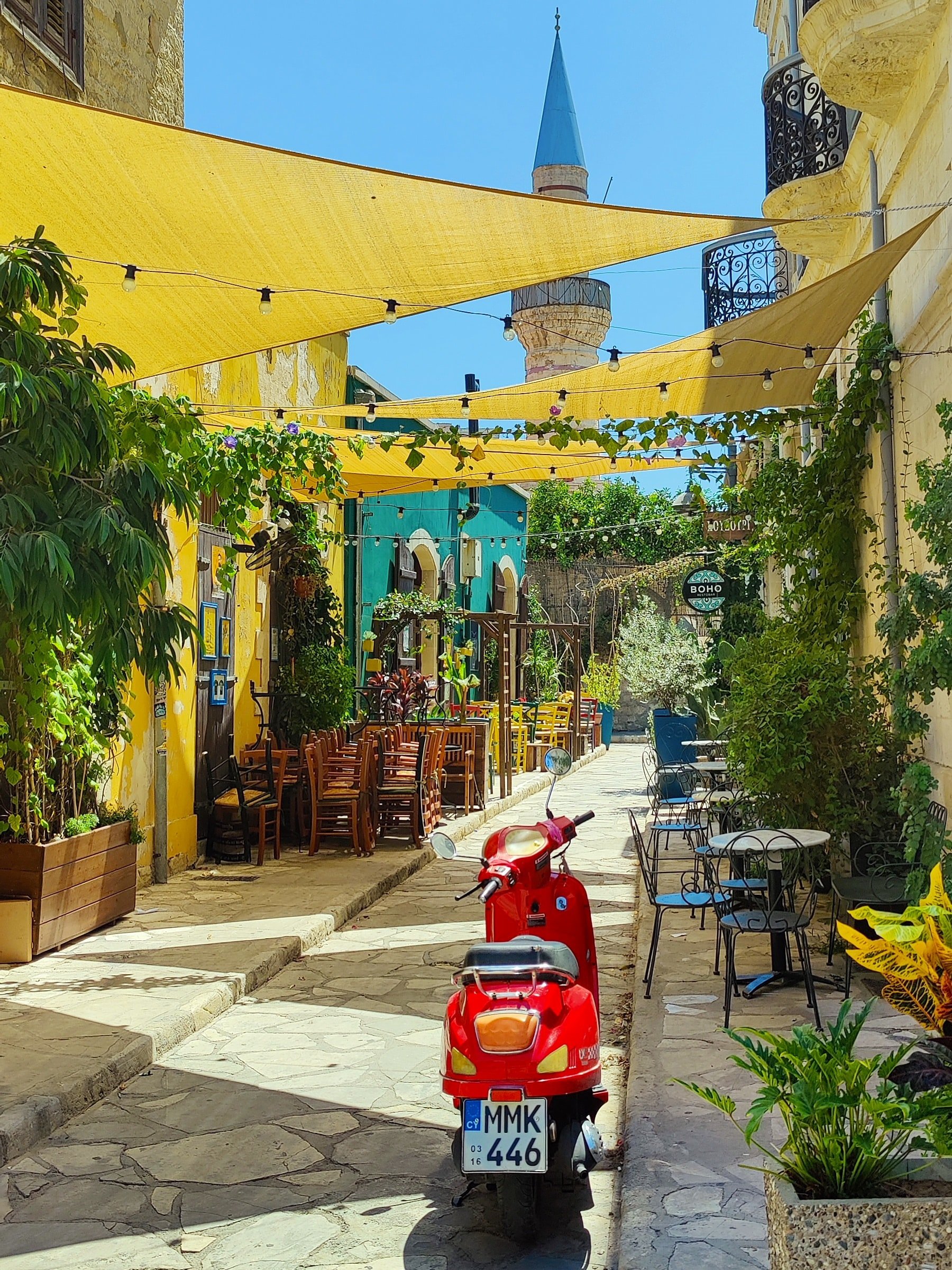
Although more than 70% of people in Cyprus own their own homes, there’s still a great rental market for expats moving to the island. We always recommend starting with renting even before you move to your new country. This way, you can test out different areas to see which one you prefer. Once you feel more settled, you can then decide if you want to become an owner. Check Facebook groups like “Houses for Sale & Apartments for Rent - Cyprus” or websites like https://www.spiti24.gr/en/to-rent/property/cyprus or https://www.bazaraki.com/real-estate/houses-and-villas-rent/. The best time to look for accommodation in Cyprus is during the low season. Not only will there be more options for short-term accommodation to stay at while house hunting, but you may be able to negotiate a longer stay at a reasonable rate.
Rental prices are very affordable in Cyprus, making living on the island an extremely cheap option for any expat. For around €400 a month, you’ll be able to rent a studio apartment in one of the cities. If you want to live in one of the major cities and would like a larger apartment to live in, it would only cost you around €500-750 a month.
Most rental agreements in Cyprus will be for 12 months, and it’s essential to check what’s included in your lease before you sign anything. Depending on your landlord, you may also have to look for other companies to sign agreements for utilities like electricity and water. These may not be included in your monthly rent and can cost up to €100 a month.
When signing a lease in Cyprus, you’ll usually be asked to pay a deposit and your first month’s rent upfront as in other countries. But remember - don’t pay anything in advance. Check the apartment and room first, sign the contract and then you can proceed with all the payments.
Life in Cyprus is a lot more relaxed than in other countries in Europe, which means that you will have plenty of free time to enjoy one of the most beautiful islands in the Mediterranean.
One of the reasons so many expats choose to pack their bags and move to Cyprus is the endless activities the island offers. The perfect year-round weather means that sports like cricket, football, rugby, and sailing are always an option. Indeed, whether you prefer the beach or the countryside, the country will be like a paradise for you. You can quickly go between catching waves on the beaches to walking in densely-packed forests within a few hours. There are currently 10 national forest parks across all over Cyprus that play a vital role in protecting the national heritage and are considered an important national resource.
Indeed, this Mediterranean island ticks all the boxes when it comes to incredible spots. Those longing for strolling around will enjoy discovering hidden cobblestone laneways in charming towns like Omodos and Pano Lefkara, and partygoers will find plenty of places to dance the night away in clubs scattered around the southern Cyprus cities of Paphos, Limassol and Larnaca. All 3 are, of course, also worth a visit during the day.
Even if you’re not one for outdoor adventures, there are still lots of things you can do to pass the time. For example, Cyprus is known for its strong culinary traditions, with Cypriots being big fans of going out to eat or grabbing a coffee with friends. Due to the excellent year-round climate of Cyprus, it’s not uncommon to enjoy food outside in open-air tavernas or courtyards!
Although influenced by Greek cuisine, the dishes of Cyprus have a unique flavour and taste. Traditional Cypriot foods include souvlakia (grilled meat kebabs), shaftalia (grilled sausage), afella (pork marinated in coriander), fried halloumi cheese, olives, pitta bread, kolokasi (root vegetables), lamb, artichokes, chickpeas and rabbit stews (stifado)... We know you are salivating right now! Interested in wine? The country also offers plenty of wine routes due to its longstanding tradition of winemaking.
For the history buffs, there’s also plenty to explore. For a country that’s been populated since the Neolithic period, you could never get bored of the endless amounts of historical sites, architecture and ruins that you could spend your days visiting. From the ancient settlements of Amathus, Palaipafos and Nea Pafos, to prehistoric Choirokoitia (World Heritage Site) and the Crusader castles on the island’s coast, you will get amazed by how much this island can tell! If you are more into Greek mythology, a visit to the Baths of Aphrodite is a must - these baths are said to be where the goddess Aphrodite met her great love, Adonis.
There’s also something for everyone at the country’s regular events and festivals throughout the year. Here are some of the most popular:
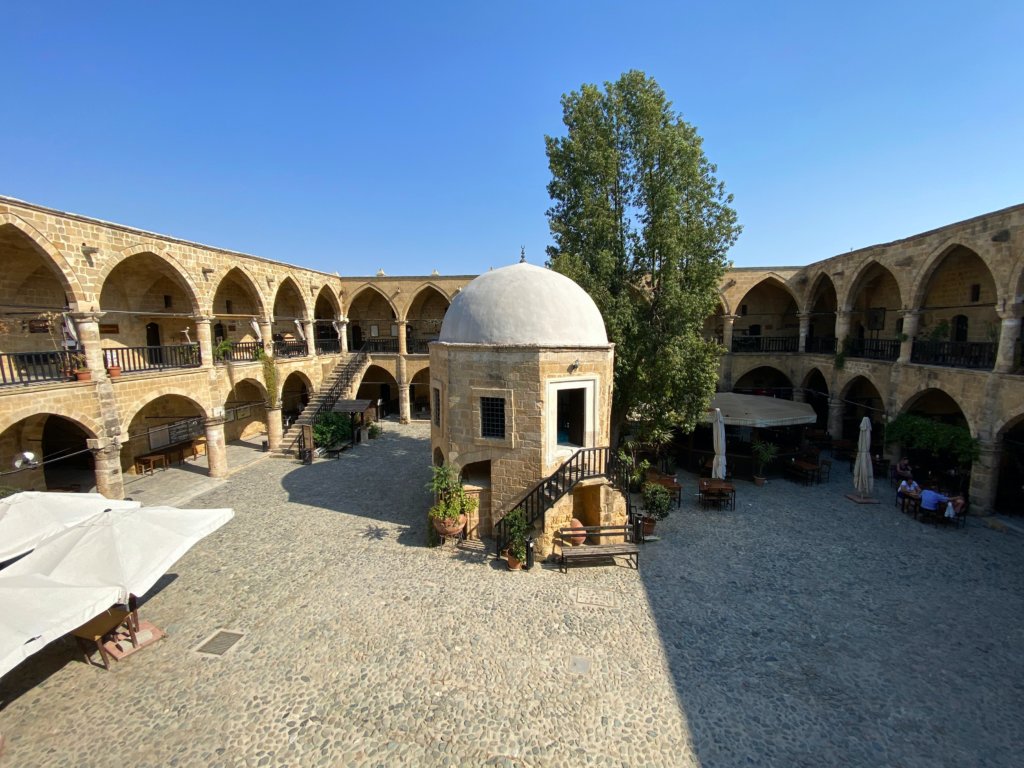
If you’re already used to living in a big European city, you’ll find the cost of living in Cyprus extremely affordable. For example, renting prices are 40% lower than in Stockholm, and eating out is 20% lower.
Eating out, in particular, is very cheap in Cyprus, which is why it’s common for many Cypriots to eat out in a local restaurant at least once a week. A meal in an average restaurant will typically cost around €15-20 per person, with beer or a coffee in a cafe costing around €3.
Groceries in Cypriot supermarkets are usually quite affordable if you stick to the excellent local produce and meat that the island has to offer. If you do think you’ll end up buying more imported products, then you can expect your weekly shopping bill to be fairly high.
On average, a single person can expect to pay around €500 a month to live in Cyprus, which doesn’t include the cost of the rent.
| Nicosia - Cyprus | |
| Groceries | |
| 1 kg oranges | €1.66 |
| 12 eggs1 kg potatoes | €3€0.89 |
| Restaurant/cafe | |
| Beer (0,5 l) | €3.5 |
| Meal for 2 at restaurant | €45 |
| Cappuccino | €3.2 |
| Sport & Leisure | |
| Gym membership | €50 |
| Cinema ticket | €9 |
| Public transport | |
| Single ticket bus | €1.5 |
| Taxi (normal tariff - 1km) | €1.21 |
| Average salary | €1,300 |
Getting around Cyprus may not be the easiest compared to the well-connected nature of many major European cities, but expats should not find it too difficult to get from A to B.
There’s no railway system in Cyprus, so the best way to get around is either by bus or by car--in fact, most people over the age of 21 in Cyprus own their car to avoid using public transport. Remember that Cypriots drive on the left-hand side of the road and, despite the different opinions you might hear, the standard of driving is quite ok.
Four different bus services are on offer on the island to help you get around:
If you are thinking about using buses as your primary form of transport, you can only buy tickets on the bus or Smart Cards at the local points of sale. If you plan to be riding the bus frequently, we recommend getting these rechargeable cards. Keep in mind that some routes stop running at the early time of 7.00 pm and may not come as often on the weekend, so you should check the most convenient bus routes to go to work or wherever you want to.
There are two international airports on the island; Larnaca International Airport and Paphos International Airport, which provide excellent transport links with other countries in Europe.
Of course, taxis are also another option. You need to know that you should pay the exact amount as drivers will consider any additional money as a tip and won’t give you any change!

For a country with a population of just over a million people, an impressive number of 110,000 expats currently call Cyprus home, so you’ll never find it hard to meet other international people in the same situation as yours!
In the major cities, you’ll find plenty of fellow expats from across the world, and because of the number of tourists, you won’t find it hard to meet other English speakers. There are also plenty of expat groups that you can find online which organise meetings, events and trips. You can find these groups by simply googling the name of the city you’re moving to, and “expat groups” or “international groups”. There are also groups on Facebook where you can find expats that help expats in different matters.
Of course, everyone likes to find other people from their home country or other parts of the world and take the time to meet some of the locals (Cypriots are very friendly and open-minded). They may be able to take you to all of the best spots and locations that you would never know about if you weren’t taking directions from a Cypriot!
In Cyprus, they speak a mixture of Turkish, Greek and English. This is excellent news for people who have learnt English, as you will easily be able to converse with the locals. Even though most people will be able to understand you if you speak English, it’s always best to try and learn a few local phrases that may come in handy during your time in Cyprus.
Many people speak modern Greek, but many Cypriots use their own dialect, which is a mixture of modern and ancient Greek. Here are some common phrases you should learn:
Choosing to work in Cyprus will allow you to work in many different industries, which is extremely useful, even if you decide to move home, or to another country, in the future. There are plenty of professional opportunities in Cyprus for expats, whether you want to work remotely and enjoy the area you live in or work in the professional offices in the major cities. Moreover, Cyprus' current corporate tax rate is as low as 12.5%, making it a desirable location for international business!
Some of the main industries in Cyprus that could be of interest to expats include:
However, the country has been struggling from the economic and financial crisis in the last few years. Since Cyprus' banking sector has been extensively exposed to Greek debt, the economic growth rate shrank severely. Cyprus came out of recession in 2015 — one year earlier than initially assumed. Now, it is one of Europe's fastest-growing economies and has shown remarkable resilience since the financial crisis.
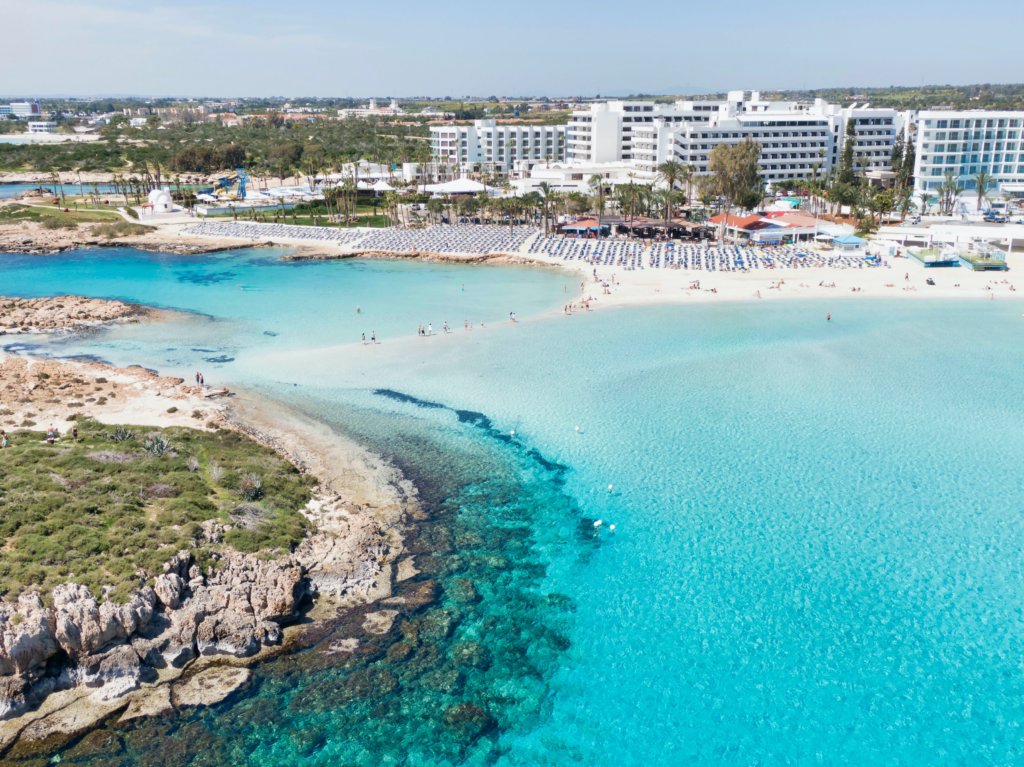
In Cyprus, the typical working week is 38 hours long for 5 days a week, and you’re eligible to receive 20 to 24 days of annual leave. Salaries depend on skill level, experience, company, industry sector and location. In general, the average wages in the country are quite balanced with the cost of living. There is no national minimum wage in Cyprus.
Work culture in Cyprus is based on three main things; respect, personal trust and hospitality. There is a solid focus on creating connections and relationships with the people that you work with. Because of this, you’ll find that most Cypriots will much rather have a face-to-face meeting than one over the phone. The working environment can be quite hierarchical. While deference is shown on a vertical level, a more informal approach can be used among colleagues who have a similar position. Although sometimes informal, you should always wait to be invited to use first names before doing so. However, things can completely differ in an international environment.
It’s also not uncommon for your Cypriot colleagues to invite you to get a coffee in a Kafenio (a typical coffee shop) or have lunch together before they start to talk about business. This is just another way to build a personal relationship with you and get to know you better.
Punctuality is important to the Cypriots, and they also like to arrange meetings well in advance formally. When you enter into a meeting, it’s polite to greet your partners in Greek with ‘kaliméra’ for ‘good morning’ or ‘kalispéra’ for ‘good evening’ and then once the meeting has finished, you’re expected to say goodbye to each person individually.
In Cyprus, you’ll experience some of the lowest income taxes in the world. You will never pay income tax if you earn less than 19,500 euros a year! From that amount, a chargeable rate applies depending on which band your annual salary is:
| From | To | Tax rate (%) | Accumulated tax (EUR) |
| 0 | 19,500 | 0 | 0 |
| 19,501 | 28,000 | 20 | 1,700 |
| 28,001 | 36,300 | 25 | 3,775 |
| 36,301 | 60,000 | 30 | 10,885 |
| 60,001 | and above | 35 |
In addition, the rate for social security contributions in Cyprus are shared both by the employee, and the employer and is at 8.3% each. These contributions are significant to sustain the welfare state and include the following:
| Type of insurance | Paid by employer | Paid by employee | Total |
| Social insurance | 8.3% | 8.3% | 16.6% |
| Redundancy | 1.2% | - | 1.2% |
| Training and development* | 0.5% | - | 0.5% |
| Social cohesion | 2.0% | - | 2.0% |
| Total | 12.0% | 8.3% | 20.3% |
When moving to a new country where you don’t know anyone, it’s essential to find your own network of professionals who may also work in your industry and help you improve your career prospects.
Like many countries, there is a growing startup culture in the capital city, Nicosia, but it’s nothing compared to the likes of larger European cities, so it can be hard to meet new people--but there’s always a way! You can easily find networking events on Google by searching for “Networking events in Nicosia” or “Meet business professionals in Cyprus”. You can even look for groups on Facebook that connect business professionals in the country or Eventbrite about any topic in any sector or field!
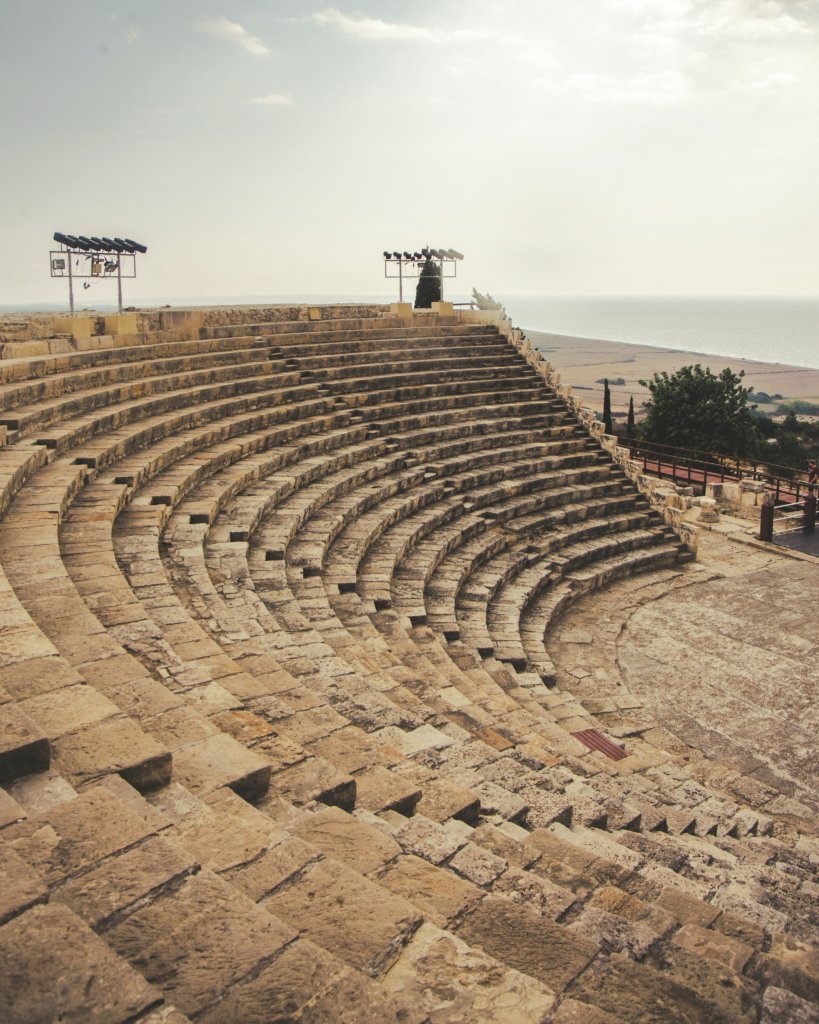

Since 2004, Cyprus has been part of the EU. This means that if you’re also from an EU country, you’ll find it pretty easy to move to the island. You’ll just need to apply for a long-term residence permit. This will allow you to stay in the country for more than 120 days and will be valid for 5 years.
To apply for the Registration Certificate, most commonly known as “the yellow slip”, book a time and go to the Civil Registry and Migration Department in the area of Cyprus you’re living in. You will need to bring the following documents:
The authorities will then assess your application but don’t worry if it takes a while to hear back as there are always delays and back and forths. After your application is approved, you will have to pick up the yellow slip at the office.
After this, you will be able to apply for your Taxpayer’s Identification Code (TIC), an 8 digit number with a letter at the end, if your gross salary exceeds €19,500 (because you will have to pay taxes!). To do so, you will have to go to the local District office with the following documentation:
*Tip: once you get your TIC, ask for your Unique Registration Number (a 17 digit number) – necessary to register in TAXISnet later on. On that platform, you will be able to make your Tax Declaration and check your taxes.
The healthcare system in Cyprus is very similar to many other European countries, and it is generally considered an extremely high standard. It’s split into public and private sectors.
The state-run system, also known as the General Healthcare System (GESY), is still fairly new to Cyprus’s residents. This new system aims to provide universal population coverage, improve accessibility, and address inefficiencies in service delivery.
The Cypriot state health insurance scheme currently covers basic medical care, specialist care, hospitalisation, laboratory work, maternity care, and some prescriptions… Typically, healthcare tends to be quite affordable in Cyprus. However, keep in mind that some services include a small fee, depending on your gross income. On another note, the good news for English speakers is that most doctors in Cyprus also speak in English, so you never have to worry about not understanding what they’re saying in a medical emergency!
Private healthcare services are also thriving in Cyprus. You can choose from 134 private facilities placed around the country (mostly in built-up areas), including for-profit hospitals, polyclinics, clinics, diagnostic centres, and independent practices.
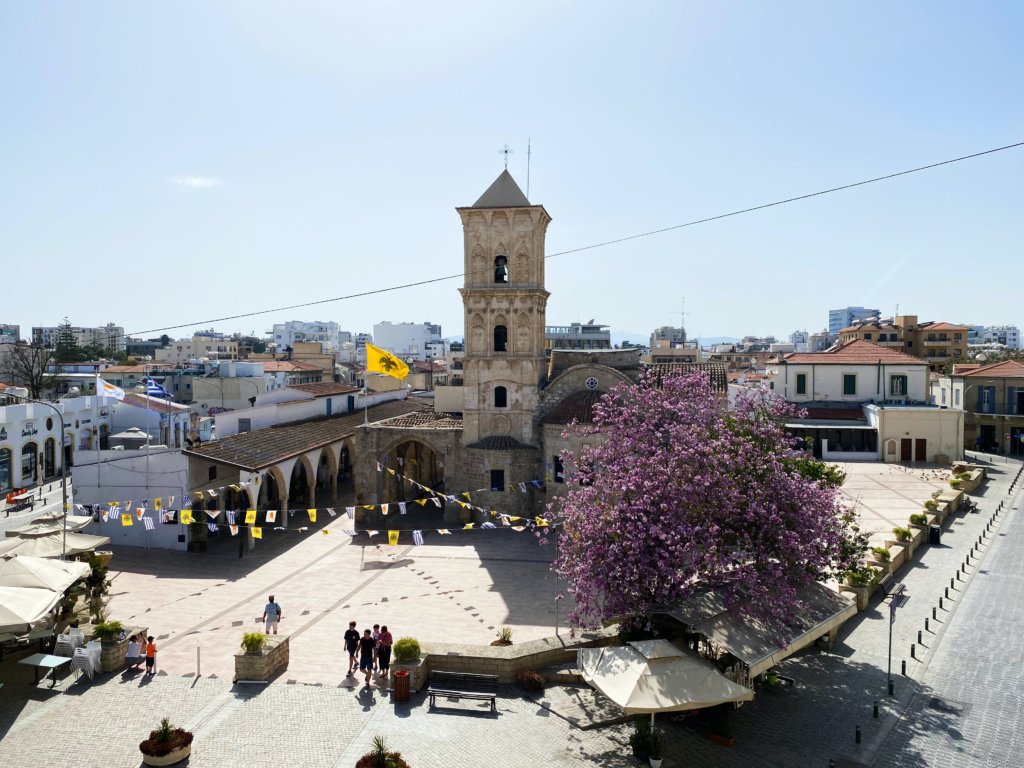
If you’re moving to Cyprus, you can keep your bank account from your home country. However, you may have issues renting a property or getting paid at your work as these payments usually can only be made to a Cypriot bank account. Therefore, the best thing to do as an expat is to open up a Cypriot bank account--it will make your life a lot easier!
Some of the most popular banks in Cyprus are:
Opening up a bank account in Cyprus is incredibly easy, but you will have to bring all of the correct documents with you when you visit the bank to open an account (banks are open in Cyprus from Monday through Friday, 8:30 AM to 1:30 PM). Those documents will depend on the bank in question, but they will generally need:
If you’re used to quick service, you need to know that Cyprus operates in the typical Mediterranean way, with business occurring at a relaxed pace. This pace extends to banking, so expect to wait longer than you might at home.
You should also expect to pay a small annual fee for maintaining a checking account or credit card. These fees are usually around €10 per year. ATM fees and service charges will also vary; in some smaller towns and villages, you might face up to €5 for withdrawals. If you’re using a foreign card in Cyprus, you might want to check which currency you should choose to be charged in when withdrawing money from an ATM.
Indeed, more expats are currently making their move to Cyprus. And we are not surprised! This paradise island located in the eastern Mediterranean sea and part of the EU presents low taxes, a laidback lifestyle, growing communities and good transport that links to the rest of Europe and the Middle East. Cyprus does tick many of the checkboxes for those who want to live and work abroad.
For those of us who aspire to live a more outdoor lifestyle, there is no better place than Cyprus to live. You’re never too far from the beach to go sailing, swimming or snorkelling, but you’re also close to beautiful forests, hills and hiking trails--it really has the best of both worlds!
Here are our top 10 reasons why you should consider the move over to Cyprus:
So if the thought of living and working in Cyprus attracts you, why not check out some of the job vacancies that we offer in the country here at Workwide Recruit!
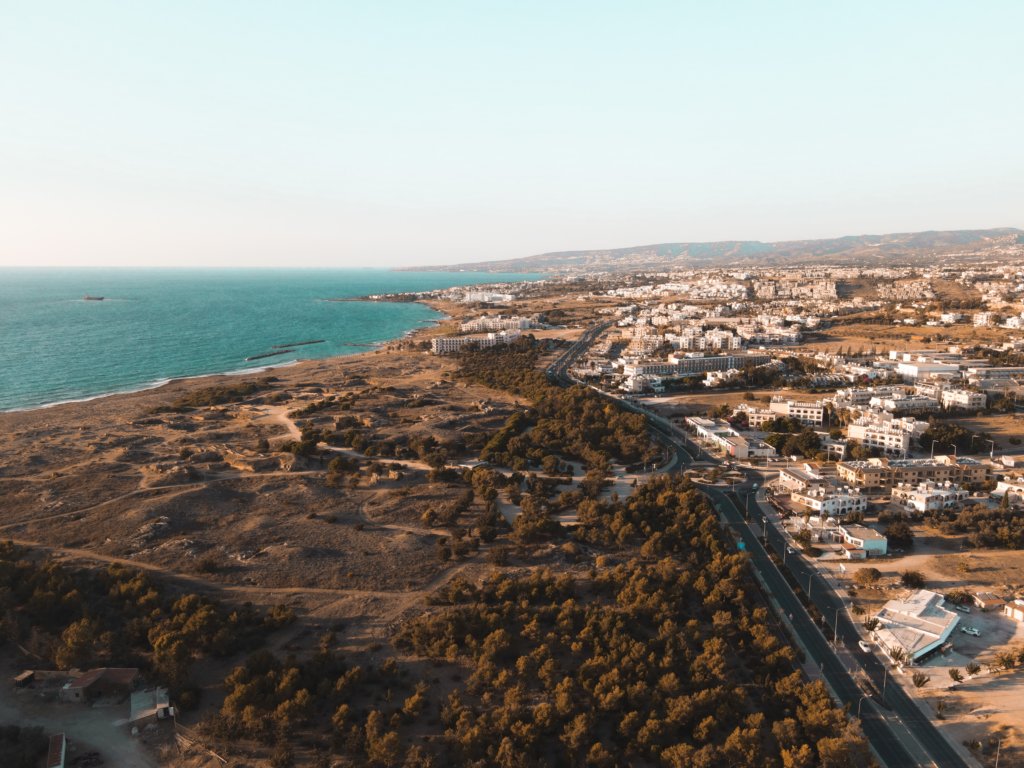
Let’s face it, moving abroad, where everything is unfamiliar, can feel like a bit of a maze. You’re struggling with...
Read moreWelcome to the beating heart of Spain – Madrid! This bustling metropolis offers a unique blend of rich culture, historical...
Read more
